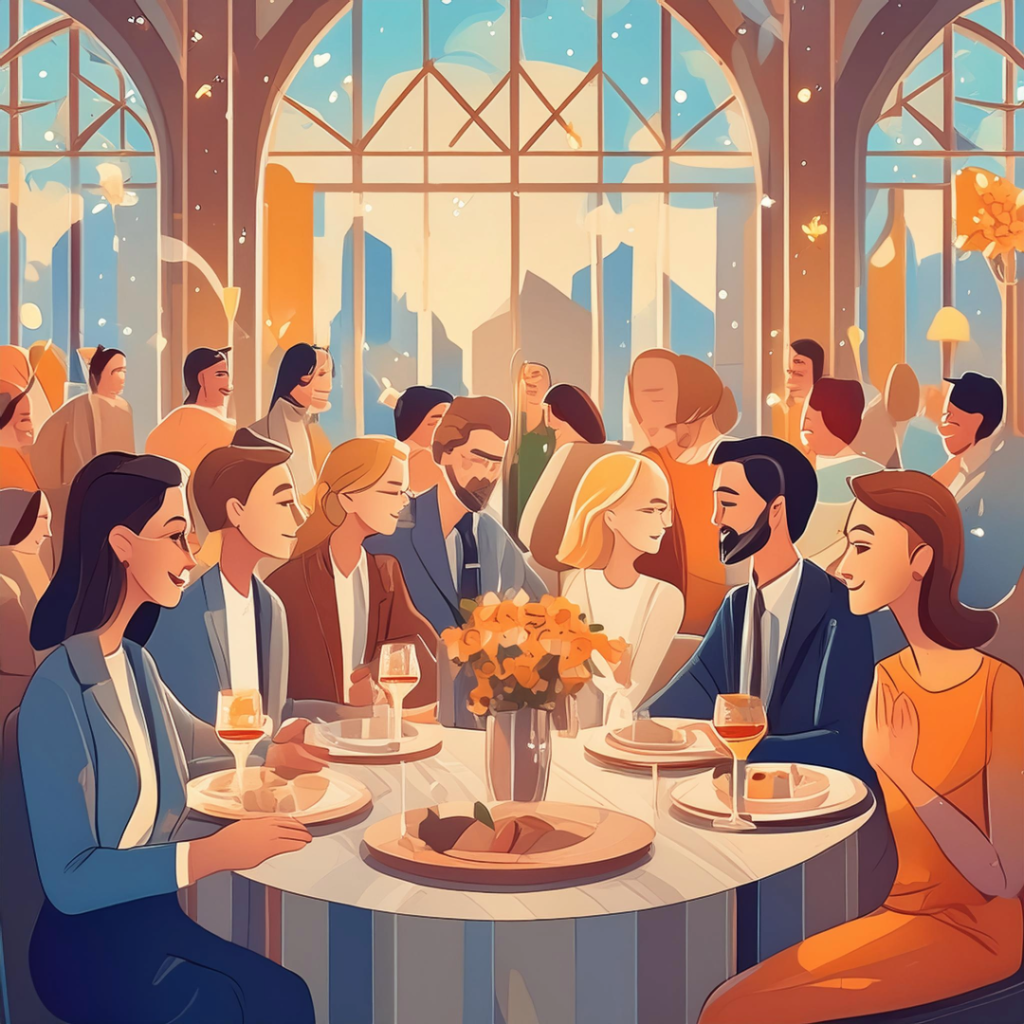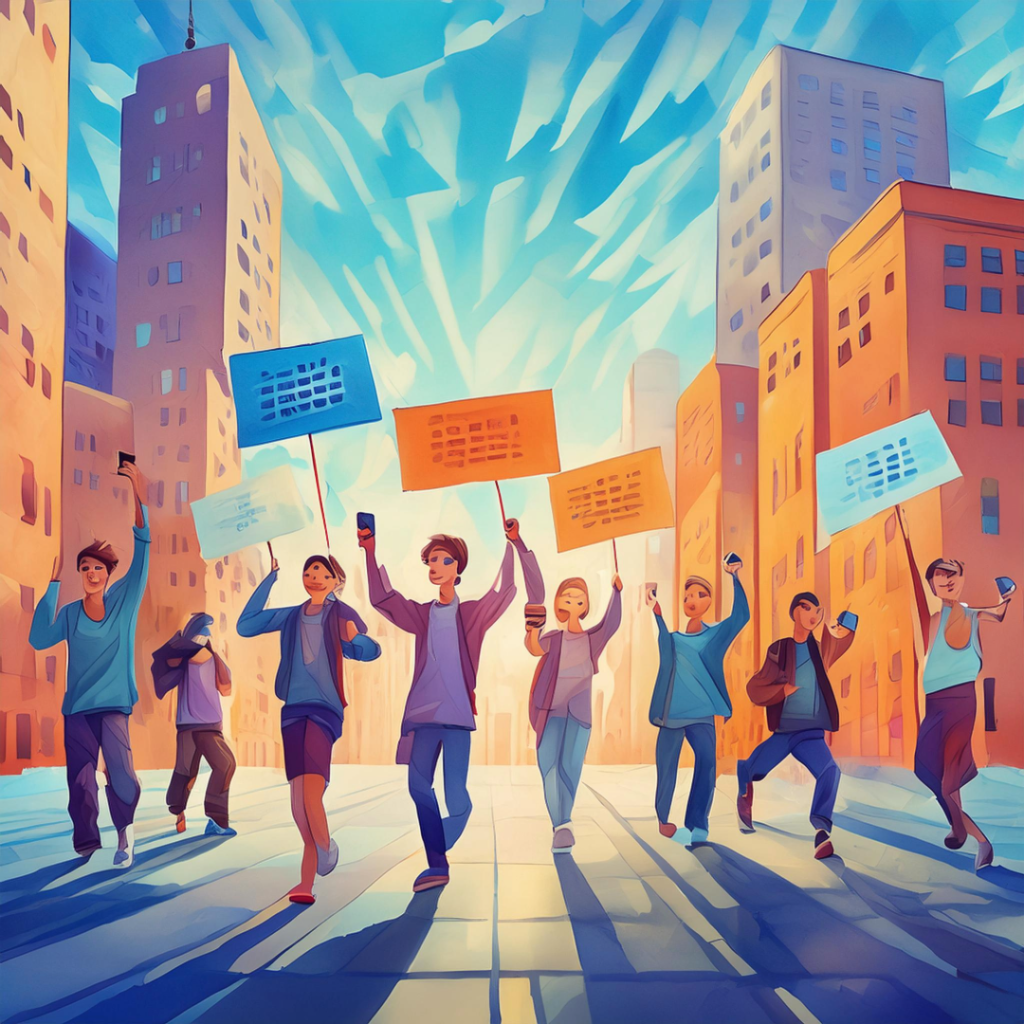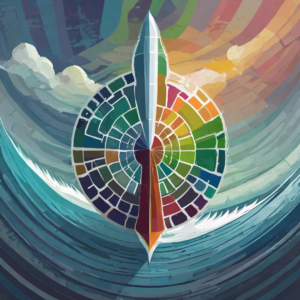In the vast tapestry of modern existence, there exists a digital realm where pixels dance to the rhythm of societal pulse: social media. It’s a virtual agora where voices echo, movements spark, and cultures collide. Welcome to the disruptive domain where hashtags wield power, celebrities mingle with fans, and pop culture reinvents itself with every scroll and click. Join us on a journey through the captivating landscape of social media impact on pop culture, where the ordinary becomes extraordinary and the virtual transcends reality
- Read More about Unveiling the Influence: How Social Media Reshapes Pop Culture : Click Here

- Know More about Navigating the Future : Promises and Challenges of AR/VR Technology : Click Here
Hashtag Activism and Social Media Impact
Social media has enabled activism and social causes to spread rapidly online. Through the use of hashtags, large numbers of people can coordinate, raise awareness, and show support for issues. Some major examples include #MeToo for speaking out against sexual assault and harassment, and #BlackLivesMatter to protest police brutality and racism against black people.
Hashtag activism has proven powerful in rallying people for a cause and bringing attention to injustices. The #MeToo movement led to many high-profile people being held accountable for sexual misconduct. #BlackLivesMatter organized massive protests across the world to demand racial justice and equality. Social media allows these causes to gain momentum quickly by reaching a huge audience instantaneously.
However, some criticize hashtag activism as “slacktivism” that requires little effort beyond clicking and sharing online. They argue it lacks meaningful impact without real-world action and organizational structures behind the hashtags. There are also concerns about misinformation spreading without fact checking or nuance in the social media outrage cycle.
Overall, hashtag activism demonstrates the influence social media gives ordinary citizens to rapidly mobilize for social and political causes. While not without flaws, it provides a powerful platform to shape public discourse and demand change.
- To know more about AR/VR Technology and Its Current Applications : Click Here
Pop Music
Social media has transformed how pop music is created, promoted, and consumed. Artists heavily leverage platforms like Twitter, Instagram, TikTok, and YouTube to directly connect with fans.
Pop stars frequently release music videos, behind-the-scenes footage, interviews, and other content on YouTube to engage fans. YouTube has also launched the careers of many musicians who originally gained popularity from posting covers or original songs. Justin Bieber is one famous example – he was discovered on the platform as a young teenager.
TikTok has become a vital platform for songs to go viral. Catchy pop songs are used extensively in dance trends, which can make them explode in popularity. Doja Cat’s “Say So” skyrocketed up the charts after it was used in a viral dance. Artists now strategize TikTok promotions into album campaigns to maximize streams and sales.
Social media also allows musicians to interact with fans in authentic ways that strengthen their connection. Artists host Instagram Live sessions, Twitter Q&As, TikTok duets with fans, and more. Fans feel more invested in artists they can follow closely online Social Media Impact.
Overall, social media has redefined the pop music landscape. It provides powerful new channels for artists to promote their music and directly engage with listeners. Viral trends on social platforms can make or break song success. Musicians must strategically leverage social media alongside traditional promotion for the best results. The internet and social media have disrupted the music industry and changed pop fandom.

- Power of 5G Technology and how Transforming Industries and Shaping the Future : Read Here
Celebrity Culture
Social media has dramatically changed how celebrities interact with fans and promote themselves. Platforms like Twitter, Instagram, and TikTok allow celebrities to directly engage with followers in an unprecedented way.
Whereas celebrities once seemed distant or unreachable, social media provides the illusion of closeness. Fans get a peek into celebs’ daily lives through candid posts, Stories, and livestreams. This gives fans a sense of personal connection as they follow along during vacations, meals out, or time spent at home. Celebrities intentionally cultivate this parasocial relationship to build and maintain their fanbases.
However, this increased access also leaves celebrities vulnerable to overexposure. Private moments and missteps get captured and spread rapidly online. Scandals that once took days or weeks to unfold now transpire in minutes as drama unfolds on social media. For example, tweets or leaked images can instantly ignite fan wars and controversies. Every public gaffe and bad moment faces heightened scrutiny in the social age.
Social media also allows celebrities to market themselves and monetize their own brands. Platforms like YouTube, TikTok, and Instagram enable celebrities to directly advertise to fans. Sponsored content and partnerships are woven into everyday posts. Authenticity can suffer as a result, with accusations of “selling out.” Discerning where celebrities’ real lives end and calculated marketing begins is increasingly difficult. The line between candid moments and calculated promotion blurs.
Overall, social media dramatically amplifies both the intimate connections and tensions between fans and celebrities. For better or worse, it has redefined celebrity culture and fandom in the digital age.
Media Industry Disruption
Social media has profoundly disrupted traditional media industries like newspapers, magazines, TV, and radio. As platforms like Facebook, Twitter and YouTube gained popularity in the late 2000s, they upended decades-old business models.
Newspapers were among the first to feel the impact. Classified advertising revenue, once a major income source for print publications, dried up as sites like Craigslist offered free classifieds online. Readers also began turning to social media instead of newspaper websites for breaking news and information. Many venerable papers folded or made deep newsroom cuts.
Broadcast media faced similar challenges. YouTube gave anyone the ability to become a content creator and build an audience. Social media allowed people to discuss and react to TV shows in real-time. Media consumption habits shifted, especially among younger audiences. Traditional TV advertising declined as marketers sought ways to reach consumers on social platforms.
Some view social media as helping to democratize media. Anyone with a smartphone now has a platform to share stories and opinions with the world. Citizen journalists bypass traditional gatekeepers to document events and issues. But concerns persist about the lack of vetting for accuracy and the potential for misinformation to spread rapidly online.
Overall, social media has profoundly shifted power and profits in the media industry by opening the floodgates to amateur content creators, citizen journalism, and new competition for legacy players. It continues to disrupt traditional business models and change how information and entertainment are produced and consumed.
Criticisms and Concerns of Social Media Impact
Social media’s impact on pop culture has not been without criticism and concern. Some of the key issues that have arisen include:
- To Know about The Transformative Impact of 5G Technology Impact Across Industries : Read Here




